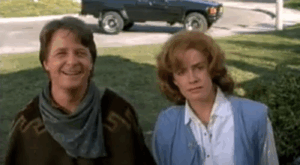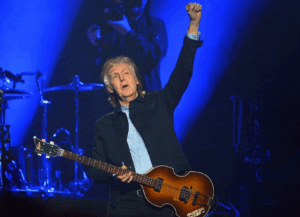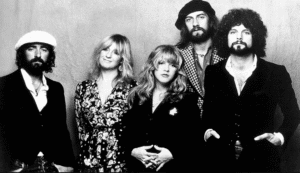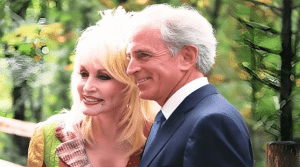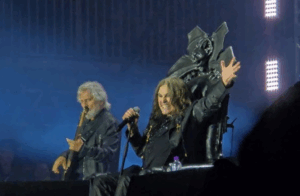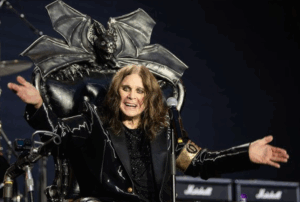The Favorite Songs Of David Crosby
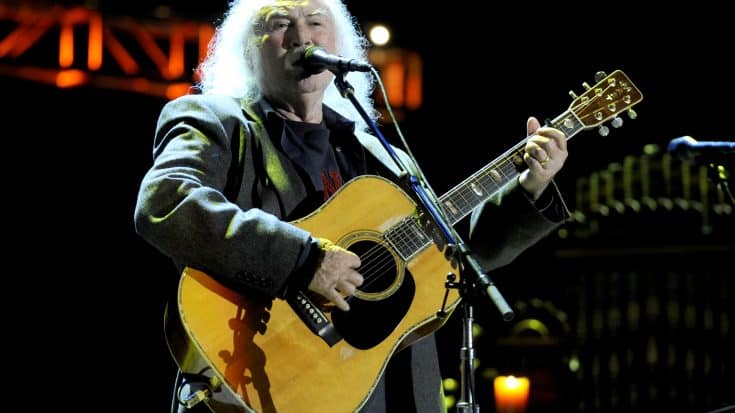
MOUNTAIN VIEW, CA - OCTOBER 26: David Crosby of Crosby, Stills, Nash & Young performs as part of the 27th Annual Bridge School Benefit at Shoreline Amphitheatre on October 26, 2013 in Mountain View, California. (Photo by Tim Mosenfelder/Getty Images)
David Crosby sang some of his all-time favorite songs, including those from his time with The Byrds and Crosby, Stills, & Nash as well as more recent songs from Death Cab for Cutie, P!nk, and earlier Graham Nash eras.
To commemorate the late singer and songwriter, who passed away last January 19, here are 9 tracks of his all-time favorites. He chose these songs along with his personal memories, anecdotes, and links to each one of them.
1. “Strange Fruit,” Josh White (1949) Written by Abel Meeropol
“Strange Fruit” was written in 1937 as a protest song against the lynching of black Americans. Billie Holiday then first recorded it in 1939. Crosby said:
“My family used to play a lot of folk and classical music when I was growing up.
“I remember hearing the Brandenburg Concertos a lot because my mum used to play that stuff all the time, but I remember folk music most vividly. She once played me a Josh White recording called ‘Strange Fruit,’ and I couldn’t understand what it was about. When I asked her she started crying and sat me down and explained it was black people being hung from trees in the South.”
Crosby added:
“Learning the word ‘lynching’ was my introduction to racism. I was a little kid and it scared me, as I didn’t know human beings did that to each other.”
2. “All I Have to Do Is Dream,” The Everly Brothers (1958) – Written by Boudleaux Bryant
The Everly Brothers recorded one of their biggest successes, “All I Have to Do is Dream,” in just two takes. It was written by Boudleaux Bryant of the husband-and-wife songwriting duo Felice and Boudleaux Bryant. Crosby said:
“This was one of the things that convinced me I really wanted to sing harmony.
“I learned both parts of the harmony—Don‘s part and Phil’s part—and I used to sing along with this record every time it came on. The Everly’s wrote the book on harmony singing, which this song epitomizes. It really affected me very strongly and made me want to do it.”
Crosby attributes the song, which peaked at No. 1 on each of the Billboard singles charts simultaneously in 1958, to teaching him everything he needed to know about harmony.
3. “My Favorite Things,” John Coltrane (1961) – Written by Richard Rodgers and Oscar Hammerstein II
Talking about Coltrane’s extended instrumental of the Rodgers and Hammerstein classic, Crosby shared:
“When I was a young folk player in Chicago, me, an English guy named Floyd and his girlfriend, a little German hooker named The Duchess, went down to a club in the south of the city. We were the only white people there and we were very, very high, we’d taken everything we could find. Coltrane was on stage, and after he’d soloed for a while he walked off stage, still playing to himself. Then the two bass players started playing for a while and finally Elvin Jones started playing a drum solo.
“The music and the drumming was so intense that I was pushed right against the back wall of the club, it was that overpowering. I ducked into the bathroom, rested my head against the wall trying to come down from this intense high. As I was trying to do this, the door crashed open and Coltrane busted in, still playing like a demon. My mind ran out my nose into a puddle. (Diazepam) That moment is engraved in my brain forever.
“Coltrane was a pretty strong influence, and I translated that to Roger McGuinn [The Byrds], which directly influenced that solo on ‘8 Miles High.’ It’s a shame he doesn’t want to work with me again because he and I could do some Byrds stuff and it would be really good.”
4. “Deacon Blues,” Steely Dan (1977) – Written by Steely Dan‘s Walter Becker and Donald Fagen
The opening track from Steely Dan’s sixth album, “Deacon Blues,” was based on Alfred Bester’s 1952 novel The Demolished Man. It simply tells the tale of a man imagining his evolution—spiritually and otherwise—was inspired by singer Donald Fagen and guitarist Walter Becker’s obsession with science fiction.
The title of the song was also partly based on the late football player Deacon Jones, who was compared to Norman Mailer in the song. Crosby shared his deep connection to Steely Dan’s Top 20 single, and how the entire album helped him stay alive during his addiction saying:
“In the depths of my addiction, I let drugs become the most important thing in my life—more so than making music, more so than almost anything.
“But somehow the music hung in there for me and it’s what kept me alive. I was listening to this song an awful lot at that time because it’s spectacularly strong: ‘They call Alabama the Crimson Tide / Call on me Deacon Blue.’ That whole record [‘Aja’] helped me stay alive at that point.”
5. “Delta,” Crosby, Stills & Nash (1982) – Written by David Crosby
In this song, Crosby shared in detail how his friend Jackson Browne helped him stay away from drugs long enough to get the song out. He said:
“It’s possible that this is the last song I wrote. I was in a pretty terrible state at the time, which you can tell from the song; it sounds lost. Jackson Browne came by the house where I was. I didn’t have a piano so I just sang him what I had and he said, ‘Jesus, that’s a really good one David, you need to finish that.’ I was in the middle of a downhill slide involving freebase cocaine. I didn’t especially want to go outside because I didn’t want to bother with anything except taking more drugs, but Jackson really insisted and brought me to Warren Zevon‘s house where there was a piano. He sat me down at that piano and pulled this song out of me. Whenever I wanted to get up to go to the bathroom and take some more dope, he would say ‘No, no, finish the song,’ and he kept me there until I did it. Now when we sing it, I thank Jackson for helping me get it out.”
6. “Lay Me Down,” Crosby & Nash (2004) – Written by James Raymond
“Lay Me Down” was one of five songs that James Raymond, David Crosby’s son, composed or co-wrote for his father and Graham Nash’s double album Crosby & Nash, released in 2004. Crosby said:
“This is the moment where my son James and I are united musically.
“It’s a stunner. Graham and I were getting ready to make a record and James says, ‘I think I’ve got a song for the album,’ and sits down and plays this devil for us. It was mind-blowing, as if he was inside our heads when he wrote it.”
Raymond and Crosby started writing together soon after they reconnected. Put up for adoption shortly after he was born in 1962, Raymond had little contact with his biological father since then, until his adoptive parents reached out to Crosby around the time of his liver transplant in 1995. Crosby shared:
“They told me they knew I might not make it, but if I did, would I meet my son.
“As soon as I could stand up and walk, I did. There could be others out there. I have six children that I know of, but I think there might be a seventh one, a girl, but I have no way to find out.”
7. “I Will Follow You Into the Dark,” Death Cab for Cutie (2006) – Written by Ben Gibbard
The acoustic ballad was composed by lead singer Ben Gibbard and was recorded with a single microphone with minimal editing. Although the song didn’t do well on the charts, it is one of the band’s best-selling songs and has a double platinum certification. Crosby said:
“I love Ben Gibbard’s writing.
“I wasn’t so keen on that eight-minute-long single, but I heard this song on the radio. It was just so compelling, simple, and amazing that it was on the radio. Such a beautiful statement: I will follow you into the dark. Simplicity like that is rare now, everything is so overproduced but this is direct and strong.”
8. “Dear Mr. President,” P!nk (2006) – Written by P!nk and Billy Mann
The song was released in the George W. Bush era and before Barack Obama was elected president in 2008. Crosby said:
“If you listen to the radio now you won’t hear any protest music.
“You used to be able to get some—songs like ‘Ohio’ or ‘For What It’s Worth,’ but you won’t hear anything like that now. This song of Pink’s is a strong anti-war statement, a strong anti-George Bush statement.
“If you go to Neil Young’s website there’s something like 2,500 protest songs on there, all written by fans, by the public. People are still writing them but they’re mostly being excluded from the mainstream. This song by Pink is a rare thing: a mainstream pop song that’s also a protest song.”
9. “Cold Rain,” Graham Nash (1977, 2009) – Written by Graham Nash
Crosby stated about this song:
“This one of Nash’s has particular significance for me.
“In that song you hear how this kid said to himself that life in this gritty, industrial city of Manchester just wasn’t going to be good enough for him and he was going to find a way to play and sing his way out of there. You can hear exactly where he came from and how he decided to lift himself up by his own bootstraps and get out of there.”
He added:
“It’s a revealing song and if you really understand it, it makes you love Graham.
“Nash and I can read each other’s minds, when we’re singing harmony we’re like a pair of spitfires doing stunts. We’ve had arguments before but it’s very, very rare. I argued a lot with Joni [Mitchell]. She’s easy to argue with, but Nash has always been a true gentleman.”
“Cold Rain” was written and performed by Graham Nash. It was initially made available on the 1977 album CSN by Crosby, Stills, & Nash. Later on, Nash included a different version of the song on his 2009 solo album, Reflections.






